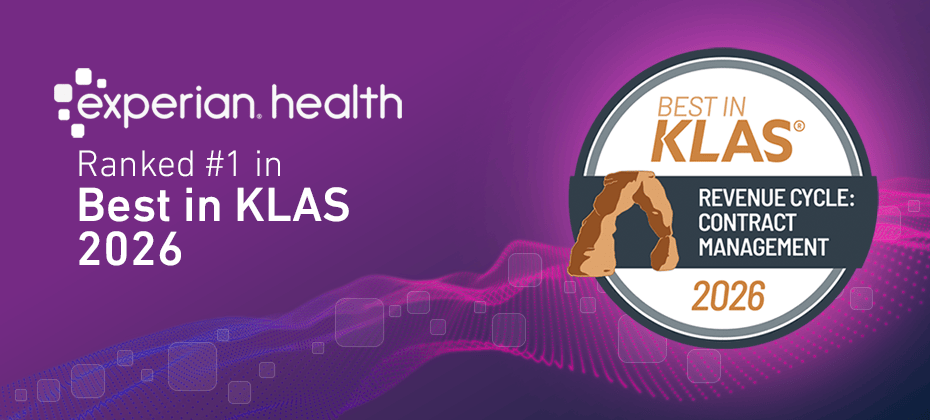
Highlights:
- Healthcare claims processing is becoming more complex, putting financial stability at risk.
- Many organizations are turning to technology, particularly automation and artificial intelligence (AI), to improve the speed and accuracy of claims processing in healthcare
- Organizations that modernize their claims systems and track key performance indicators are better positioned to reduce denials and accelerate reimbursement.
Healthcare claims processing is getting harder, according to Experian Health’s 2024 State of Claims report. For 65% of healthcare leaders, claims management is more complex than before the pandemic. Slower reimbursements, rising denial rates and mounting administrative pressure are putting financial performance at risk. To improve speed and accuracy, many organizations are investing in technology: 45% of providers plan to invest in claims management technology in the next six months. As margins tighten, those that modernize their healthcare claims processing systems will be better equipped to stay financially strong.
Understanding the current healthcare claims processing landscape
Despite its central role in healthcare finance, claims processing continues to be one of the most resource-intensive and error-prone parts of the revenue cycle. Findings from the State of Claims report highlight three linked challenges that make it tough for providers to get paid promptly: rising denial rates, recurring errors that lead to even more denials, and the growing burden of rework.
Denial rates are rising
Claim denials are a persistent and growing issue. According to the report, 38% of healthcare leaders said that more than 10% of their claims are denied, and 11% reported denial rates over 15%. These numbers represent not just lost revenue, but significant time spent on rework and appeals.
Common causes of denials
The underlying reasons for denials are largely preventable. In the survey, 46% of respondents pointed to missing or inaccurate data and authorization problems as key contributors. These issues often stem from manual errors, inconsistent data entry, or gaps in communication between systems and teams. Incorrect insurance details, incomplete patient records and missing prior authorizations all lead to avoidable rejections.
The cost of rework is growing
As denial rates climb, so does the effort required to fix them. Almost half (48%) of respondents said they review denials manually, with three-quarters of denials handled by someone other than the person who processed the original claim. This puts extra strain on overextended revenue cycle teams on top of delayed payments.
Leveraging technology for improved claims management
Clearly, there’s a need to reduce the manual burden. Comprehensive claims management platforms can help by automating workflows, tracking payer policies and improving claim accuracy at every stage. With claims processing tools designed to streamline decision points and flag potential issues early, revenue cycle teams can work more efficiently and sidestep disappointing financial results.
For example, Denial Workflow Manager makes it easier to identify and prioritize denied claims by automating follow-up steps and assigning tasks to the right team members. Enhanced Claim Status submits automated status requests to payers, so staff can respond to pended, returned-to-provider, denied or zero-pay transactions before the Electronic Remittance Advice and Explanation of Benefits are processed. Along with ClaimSource®, organizations can centralize claim activity and apply customizable edits and consistent formatting to reduce errors before submission.
Case study: How St. Luke’s Health System cut denials by 76% with Enhanced Claim Status
Enhancing data accuracy for cleaner claims
While many denial management strategies focus on the submission process, achieving clean claims starts much earlier in the revenue cycle. Much of the inaccurate and incomplete patient data that causes so many denials originates at registration.
Patient Access Curator addresses this issue by validating critical patient and insurance information at the front end. It pulls data from multiple sources to verify insurance eligibility, confirm coverage details and flag inconsistencies in real time. By resolving errors early on, it prevents incorrect data from flowing downstream into the claim process, resulting in millions of dollars saved. As Ken Kubisty, Vice President of Revenue Cycle at Exact Sciences notes, “You know when the Patient Access Curatorwent live because you can see it in our stock price. It helped us drive a $100 million bottom-line improvement within two quarters.”
On the back end, a tool like Claim Scrubber bolsters clean claim strategies by reviewing pre-billed claims line by line, to catch any remaining errors. Together, this front-to-back accuracy boosts first-pass payment rates and reduces the risk of costly rework.
Implementing automation and AI to streamline claims processing
Once claims are accurate and ready for submission, automation and artificial intelligence (AI) can help organizations work smarter and faster. Nearly half (47%) of providers already using AI consider it a competitive advantage, and it’s easy to see why. Predictive tools allow teams to identify which claims are at risk of denial before they are sent, so they can intervene early and avoid costly delays.
Tools likeAI Advantage™ use AI and machine learning to analyze patterns in claims history and payer behavior. This solution flags claims that are likely to be denied and prioritizes them for review, helping staff focus their time where it has the greatest financial impact. By identifying potential issues in advance, organizations can reduce preventable denials and improve reimbursement rates.
Analyzing key performance indicators to stay ahead
Even with the right tools and processes in place, consistent results require teams to keep a close eye on performance. Regularly reviewing key performance indicators gives them the insight they need to adjust strategies and stay ahead of claim issues.
Metrics like denial rates, clean claim rates and days in accounts receivable show where claims are most frequently getting stuck, where errors are recurring, and where improvements are actually working.
While claims processing technology can do much of the heavy lifting, it isn’t a set-it-and-forget-it solution. Long-term success depends on constant fine-tuning. Organizations that stay engaged and monitor key metrics closely are better positioned to reduce denials, accelerate payments and improve financial outcomes. Experian Health consultants are also available to help guide these efforts, offering expert support and strategic advice to help claims processing teams get the most out of their investment.
Find out how Experian Health’s claims management tools help organizations take control of claims processing in healthcare for cleaner claims, fewer denials and faster reimbursement.


